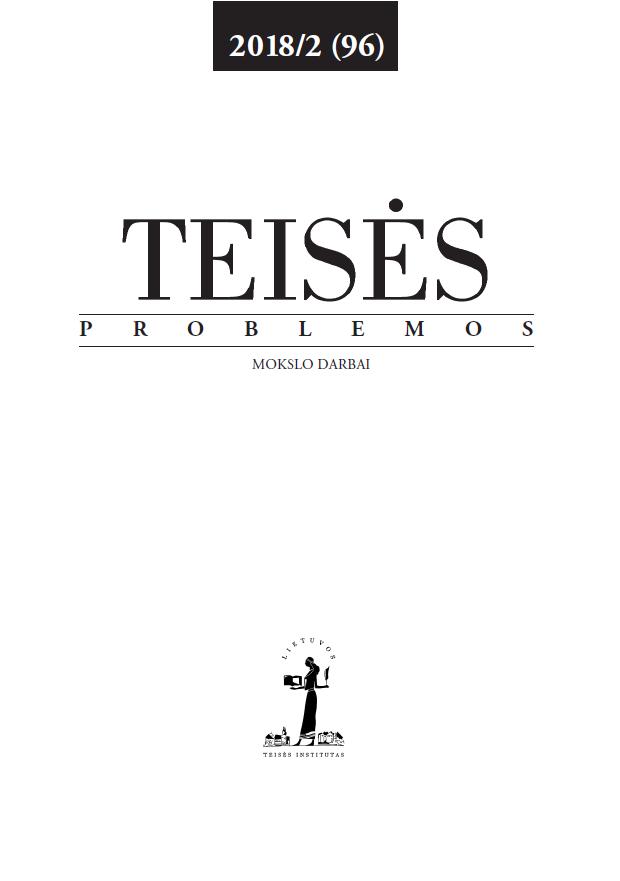Kriminalinės žvalgybos informacijos samprata bei jos interpretavimo problemos
Conception of the Criminal Intelligence: the Problems of Interpretation
Author(s): Petras TarasevičiusSubject(s): Law, Constitution, Jurisprudence
Published by: Lietuvos teisės institutas
Keywords: theoretical criminal intelligence;Law on Criminal Intelligence of the Republic of Lithuania; data collection;
Summary/Abstract: This article describes the theoretical criminal intelligence problems. A particular attention is paid to research related to the concepts such as “intelligence” and/or “criminal intelligence” which are established in the Lithuanian legal acts. The author emphasized that extent of the operational activities (previously used concept) in comparison with the activities of the entities of criminal intelligence is broader. The author concluded that upon the entry came into force of the new Law on Criminal Intelligence of the Republic of Lithuania, the concept of criminal intelligence became narrower than the concept of operational information. According to the definition established in the Law on Criminal Intelligence of the Republic of Lithuania, criminal intelligence is the data collected by criminal intelligence actors who perform criminal intelligence tasks and record in accordance with the procedure established by legal acts. Considering the above-mentioned definition, it can be seen that the data must be simply collected and recorded, but it is not required for the data to be evaluated and analysed. The lack of clarity in the process from data gathering to intelligence or the same meaning of the before mentioned concepts presents a research opportunity to distinguish them. Research shows that according to the existing legal framework the interpretation of the concept of criminal intelligence has some peculiarities and could be understood differently as it is described in the framework model for intelligence-led policing implementation developed by Organization for Security and Co-operation in Europe. The invitation of the Organization for Security and Co-operation in Europe for the Member States to use the above-mentioned framework model could be a serious step forward in revising the current legal framework from criminal intelligence to the data collection through criminal intelligence activities.
Journal: Teisės problemos
- Issue Year: 2018
- Issue No: 96(2)
- Page Range: 59-78
- Page Count: 20
- Language: Lithuanian

